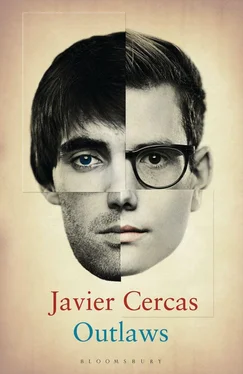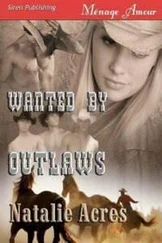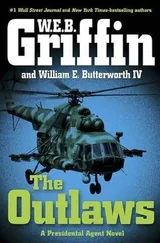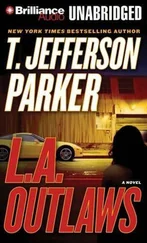‘It’s magnificent. It’s making my job much easier.’
‘It’s not magnificent. There are things missing, but nothing important is missing. Besides, a lot of things I didn’t get hold of when they appeared, but years later, in newspaper libraries and street markets. I’m sure my wife and friends thought my passion for Zarco and for everything that had anything to do with quinquis odd and sometimes irritating, but not much worse than a childish fixation with stamp collecting or model railways.
‘I remember, for example, the day I went with Irene to see Wild Boys , the first of the four movies about Zarco that Fernando Bermúdez made. I knew more or less what it was about because I’d read about it in the papers, but, as the story advanced and I realized that it was in part a re-creation of some of the things that had happened to us in the summer of ’78, I started to get palpitations and to sweat so much that after a quarter of an hour we had to rush out of the cinema. The next day I went back on my own to see the movie. I actually saw it three or four times, obsessively searching for the reality hidden behind the fiction, as if the film contained a coded message that only I could decipher. As you can imagine, I was mostly interested in the Gafitas character: I wondered if that was how Zarco saw me or had seen me in the summer of ’78, as a faint-hearted middle-class teenager who toughened up when he joined the gang and seems ready to betray him to contest his leadership and his girlfriend, and at the end of the story he does, he betrays him and on top of that he’s the only one to escape from the police in that unexplained finale that disconcerted so many people and I thought was the best thing in the film.
‘I also remember how I saw on television the press conference that Zarco gave in Barcelona’s Modelo Prison, in the spring or summer of 1983, when he managed to convert a frustrated escape into the most famous prison riot in the history of Spain. The night of the day that happened was the first time I went to Irene’s family’s house, so I remember very well that she’d introduced me to her parents and we’d been having an aperitif with them for quite a while when suddenly I saw on the other side of the dining room, on a television with the sound turned down, the image of Zarco. It was a confusing image: Zarco’s hair was very long and he was wearing a tight, short-sleeved T-shirt that accentuated his pectoral muscles, and he was lit by television lights and flashbulbs, surrounded by journalists and prisoners, he seemed to be requesting silence, with the bicep of one arm squeezed by a rubber band he held in his mouth and a syringe in his hand, about to inject himself with a shot of heroin with which he apparently meant to denounce the massive presence of drugs in the prisons. At that moment I was talking with Irene’s father and, as she told me later, without giving the least explanation I stood up, leaving the good man in the middle of a sentence, walked over to the TV, turned up the volume while behind me Irene was trying to save face by making a joke. I never said he was perfect, she said, or says she said, because I didn’t hear her. He has a weakness for quinquis ; but, if the quinqui is Zarco he goes off the deep end. Would have been worse if he’d gone in for wine, don’t you think? (Later, when we separated, Irene was less generous and less jovial, and often threw my obsession with quinquis in my face as a symptom of my incurable immaturity.) I also remember having seen on the television at Xaica, a self-service restaurant on Jovellanos Street where Cortés, Gubau and I used to go for lunch, the final images of the escape from the high-security prison Lérida II, the images of Zarco lying facedown on the asphalt of a suburban street corner in Barcelona, beside two of his accomplices, all three of them with their hands cuffed behind their backs, the three surrounded by plainclothes cops walking among them brandishing their pistols, perhaps waiting to take complete control of a situation they seemed to have completely under control, perhaps waiting for an order to remove the fugitives, perhaps simply savouring the minute of glory they were due for having caught, after a 24-hour search by land, sea and air, the most famous and most wanted criminal in Spain who in spite of being on the ground and facedown did not stop talking or screaming or protesting for an instant between the furious screeching of the sirens, according to him complaining to the police that he had a bullet in his back and needed a doctor, according to the police threatening them and cursing their families and their dead, according to some witnesses alternating between the two. And of course, I remember very well that because of Zarco I lost a possible client for Redondo — who moreover was an acquaintance of his or of his wife’s — shortly after starting to work at his firm. What happened was that, while the lady in question was almost in tears telling me something about an inheritance, on the television in the café bar in Banyoles where we were having the meeting the incredible and chaotic images appeared of Zarco’s escape from the Ocaña penitentiary during the cocktail party for the press screening of The Real Life of Zarco , Bermúdez’s last film, when, in the presence of a group of journalists, Zarco and three other inmates in cahoots with him took Bermúdez, the prison superintendent and two guards hostage and walked out of the prison without anyone being able to do anything to prevent their escape. I forgot Redondo’s acquaintance’s tears and her inheritance and stood up to see the footage and listen to the news standing in front of the television in the midst of a circle of seated people, open-mouthed and in silence, totally oblivious to the drama and incredulity of my client, who had left by the time I returned to our table, which resulted in Redondo coming down on me like a ton of bricks that same afternoon.
‘Anyway, I could tell you lots of similar anecdotes, but they’re not worth waiting for. The thing is that part of me was ashamed of having belonged to Zarco’s gang, and that’s why I kept it secret and was almost frightened at the idea that it might come to be known; but another part of me was proud of it, and almost wanted to publicize it. I don’t know: I suppose it was like having a chest buried in my own garden not knowing whether it contained treasure or a bomb. Otherwise, another possible reason that might explain why my interest in Zarco and other quinquis lasted so many years was a kind of gratitude or relief, the certainty of the implausible luck of having belonged to Zarco’s gang and having survived it: after all, from the end of the seventies until the end of the eighties Spain had swarmed with hundreds of gangs of rootless kids from the outskirts like Zarco’s, and the immense majority of those kids, thousands, tens of thousands of them, had died due to heroin, AIDS or violence, or were simply in jail. Not me. The same thing could have happened to me, but it hadn’t. Things had gone well for me. I hadn’t been locked up in jail. I hadn’t tried heroin. I hadn’t contracted AIDS. I hadn’t been arrested, not even after the bank robbery at the Bordils branch of the Banco Popular. Inspector Cuenca had left me in liberty instead of arresting me. I’d had, in short, a more or less normal life, something that for someone who’d belonged to Zarco’s gang was perhaps the most abnormal life possible.
‘Until I dug up the chest buried in the garden and realized that it contained both treasure and a bomb. That was at the end of 1999. One day in November Cortés burst into my office announcing at the top of his voice: News flash! Your idol has just landed in the city. My idol, naturally, was Zarco. Cortés was just coming back from the prison at that moment, and told me that, according to what the inmates he’d been to visit had told him, Zarco had been there since the night before; as was to be expected, his arrival had caused a certain stir, because it was a very small prison and he was still a very notorious character. Cortés had also found out that the prison board had assigned Zarco to a cell where he had a personal computer and television at his disposal, and for the moment he had almost no contact with the rest of the inmates. I listened to my partner with a slightly melancholic astonishment: ten, even five years earlier, each of Zarco’s movements was as complicated as those of the top football players or rock stars, so that, when he was transferred to a prison in one of the provinces or when he passed through one of them on his way to trial or to another prison, the directors of the centres would find themselves overwhelmed with petitions for interviews, and his court appearances were held under strict security measures to prevent the harassment of photographers, television cameramen, journalists and admirers and busybodies who pressed up against the police cordons and shouted encouragement to him, blew him kisses, said they wanted to bear his child or clapped rumbas that sang the story of his invented life; now, instead, not even the two local newspapers had devoted a miserable line in the Society section to his arrival. It was one of the differences that marked the gulf between a myth at its height and a myth that’s outlived its usefulness.
Читать дальше












